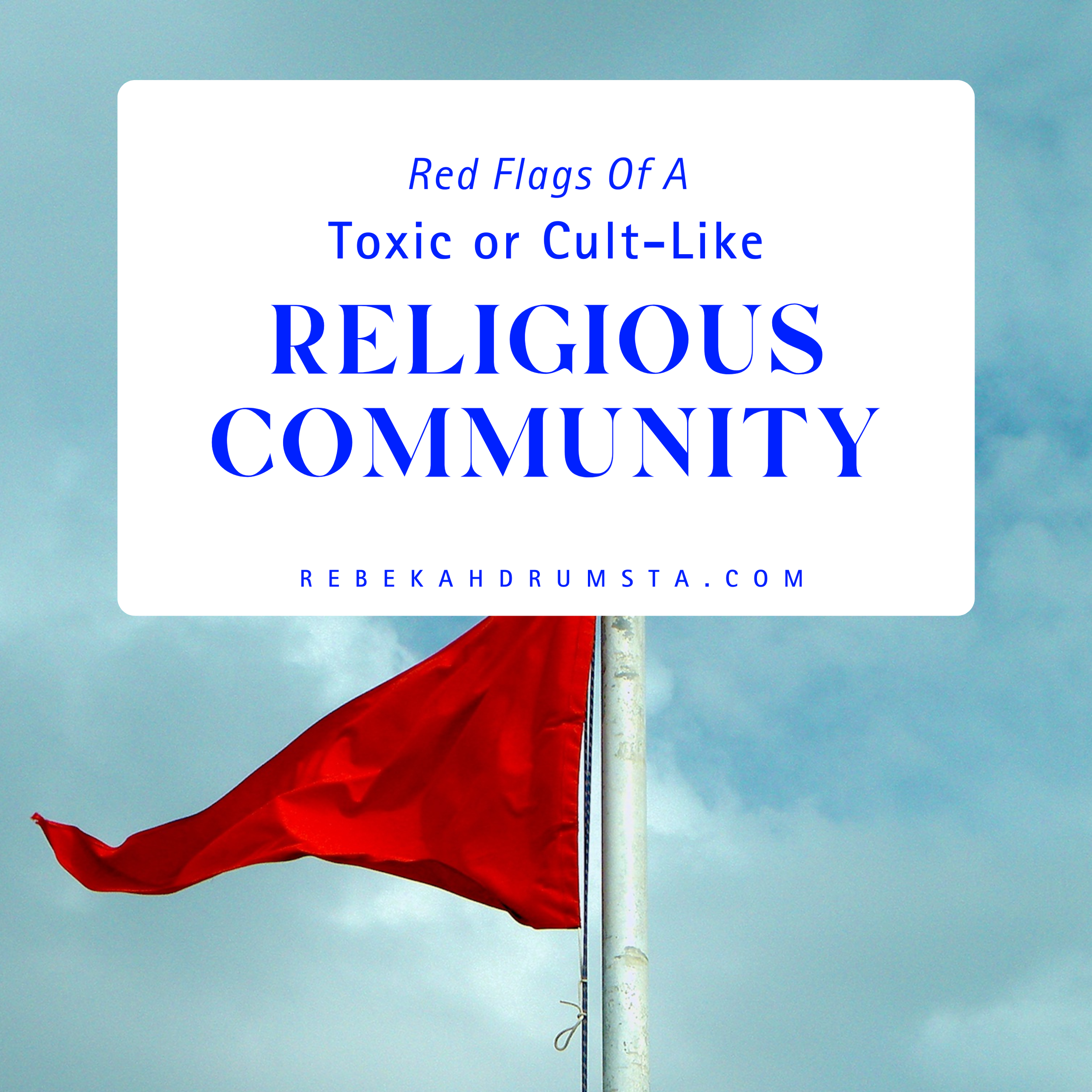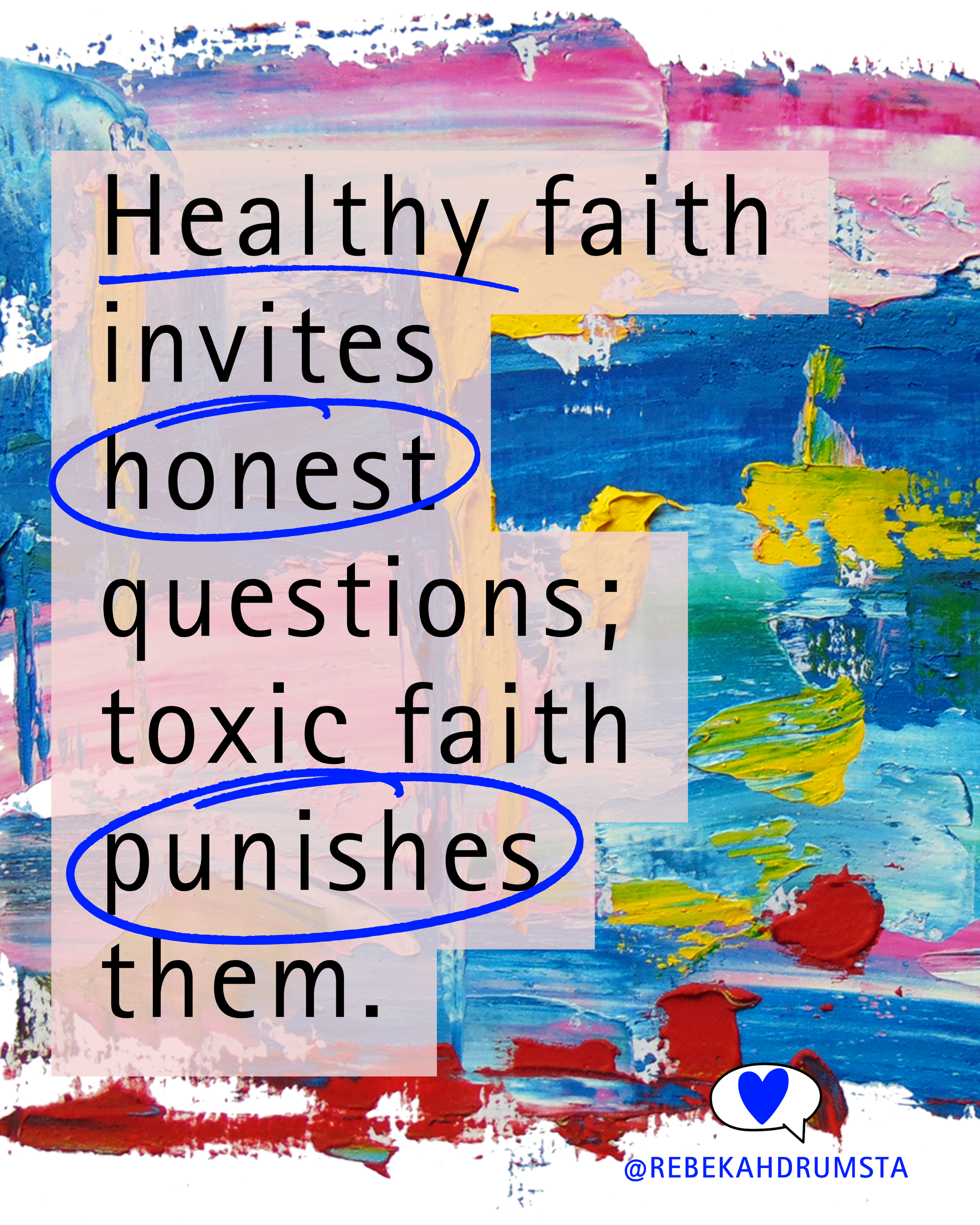Red Flags of a Toxic or Cult-Like Religious Community
I’ve heard it said that religion can help or harm. And from my experience, this colloquial analysis is accurate.
Religion can be a beautiful force—offering comfort, guidance, meaning and a sense of belonging. But when faith communities drift into extremes, what once brought life can start to suffocate and control. Toxic religious environments don’t always look obvious from the outside, and it’s easy to miss the red flags when you’re in the middle of it. So how do you know when a religious community is becoming unhealthy, or even cult-like?
Red Flags of a Toxic or Cult-Like Religious Community
1. Pressure to Conform—No Questions Allowed
Every community has values, but when questioning is discouraged and conformity is demanded, that’s a warning sign. If you’re made to feel guilty or fearful for thinking differently, or if curiosity is shut down instead of welcomed, it’s time to pay attention. Healthy faith invites honest questions; toxic faith punishes them.
2. Isolation from the Outside World
When you’re encouraged (or pressured) to cut off friends, family, or anyone who doesn’t share your beliefs, that’s a red flag. True spiritual growth doesn’t require shrinking your world or fearing “outsiders.” Watch for teachings that foster suspicion, superiority, or paranoia about the world beyond the group.
3. Leader Worship and Unquestioned Authority
If the leader’s word is final, criticism is taboo, or you’re expected to sign covenants of loyalty, be cautious. When a community centers around one person’s charisma or teachings, and dissent is met with shame, coercion or exclusion, the environment is ripe for abuse and manipulation.
4. Us vs. Them Mentality
A healthy community welcomes diversity and difference. Toxic groups thrive on division—painting outsiders as threats and insiders as chosen or superior. This mindset breeds intolerance, suspicion, and can justify mistreatment of anyone who questions or leaves.
5. Coercion, Shame, and Fear
If guilt, shame, or fear are used to control behavior—whether it’s about how you dress, how you vote, or what you think—this is a major warning sign. Spirituality should be about liberation, not control.
Other Signs to Watch For:
The theology of “submission” is emphasized or weaponized.
Unspoken rules and expectations that everyone is just supposed to “know.”
Quick defense of authority figures, regardless of circumstances.
Exclusive membership—outsiders are unwelcome, and leaving means isolation or shunning.
Loyalty to leadership is valued above personal well-being or family.
Mocking of science or critical thinking.
Signing covenants or contracts to “prove” commitment.
Paranoia about the outside world.
Bottom line:
A healthy spiritual community encourages questions, welcomes accountability, and values each person’s well-being over institutional loyalty. If you’re feeling suffocated, silenced, or shamed, you’re not alone—and you deserve a faith space where you can breathe, grow, and heal.
If you’re concerned that something is “off” in your faith community. Follow your gut. Start doing your own research and reach out to professionals who might help you dissect and understand what you are observing.
This article is not intended to treat or diagnose any condition.
Rebekah is not a licensed therapist or clinician. Any advice or opinions given on this site are strictly her own observation and insights based on personal experiences and study. It should in no way take the place of professional assistance.



